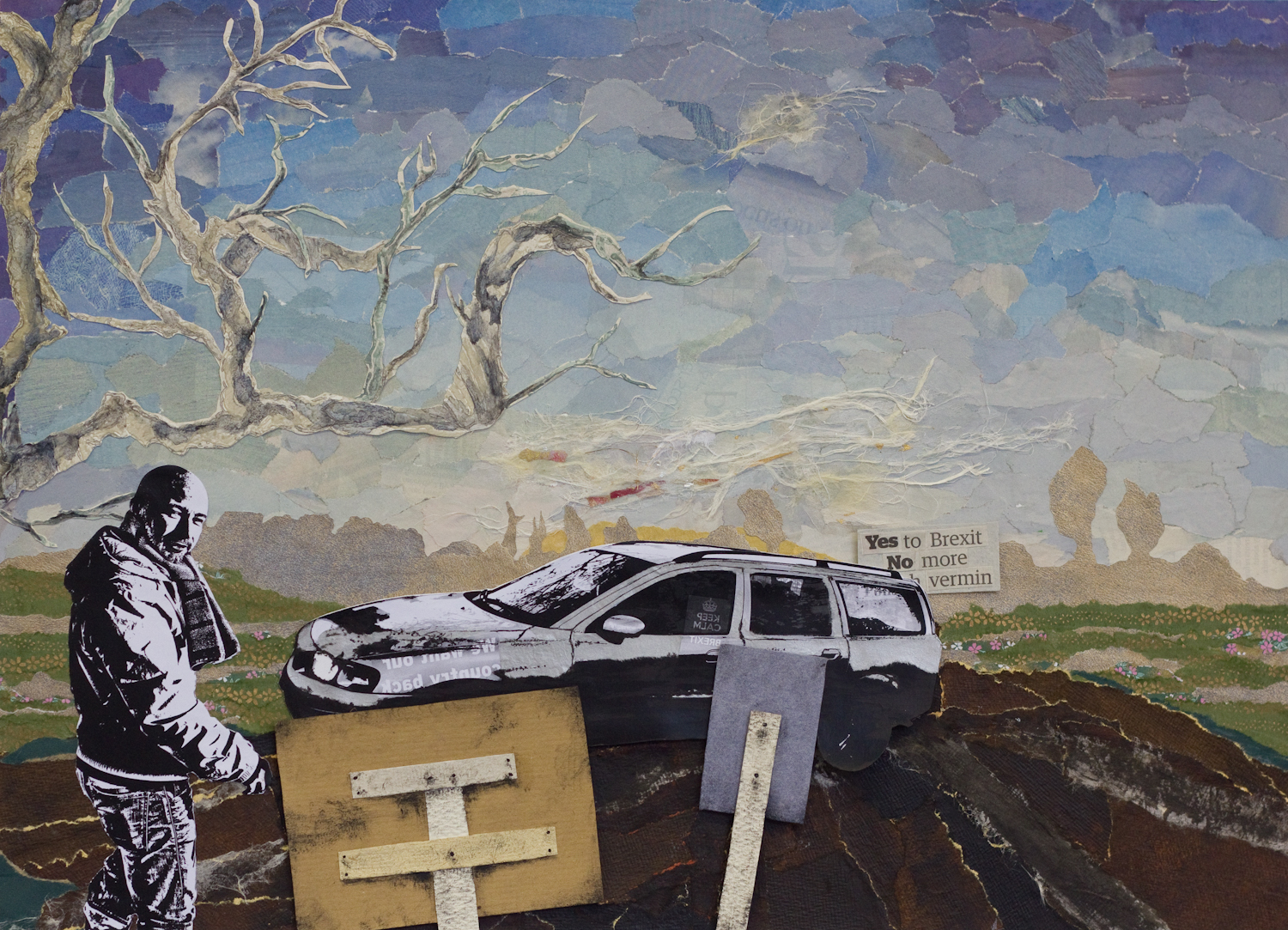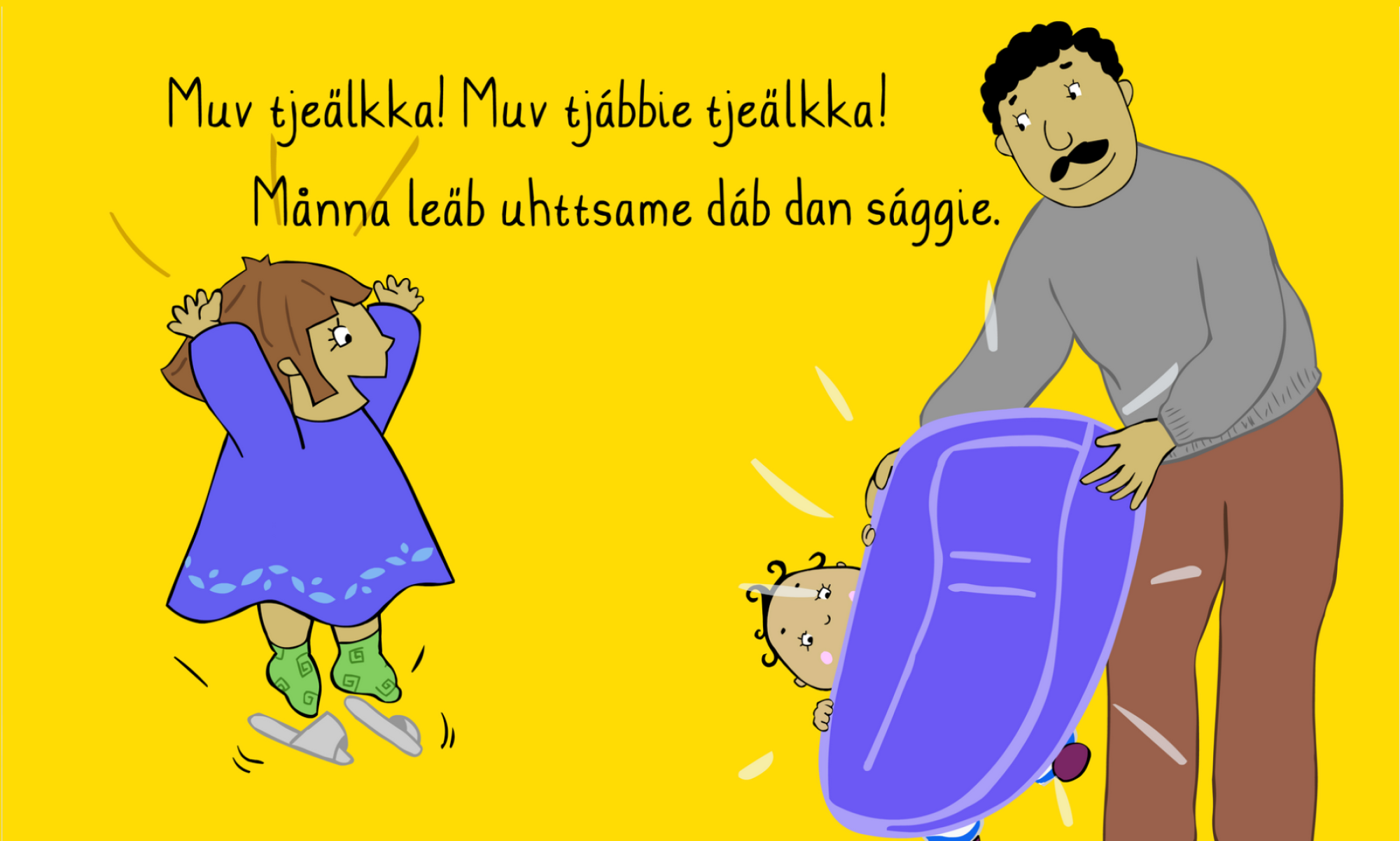 Daniel, mixed media collage with processed photography, newspaper and origami paper, 2017
Daniel, mixed media collage with processed photography, newspaper and origami paper, 2017
I have lived here for 11 years, me and my husband have a house here, we met here as a couple, our friends are here, this is where we live. Britain has a multicultural society which I enjoy. But now I feel less at home in England than ever before. There are more cases that foreigners are being singled out which makes you reflect on your own identity. Driving around in my left-hand-drive car in Cambridge, an accepting, well-off bubble of a city, is fine. But then for dog-walks, I drive outside the city and that is where I come across placards, and signs, that are advertising UKIP’s xenophobic agenda. This car takes me out of a safe-zone into an environment where I become acutely self-conscious of the stigma that foreigners can carry around. So the car symbolises the sense of being out of place. Ironically, I have been driving right-hand cars for many years but got this left-hand drive recently as a present from my brother. Now after all these years, I am considering getting a UK citizenship in order to stop being decided upon and to have a political voice of my own in this country.
On the night of the referendum, I turned off my phone because I did not want to get any messages promising the UK would remain in the EU as long as the final results had yet not been announced. In the morning, when I found out about the Brexit outcome, I simply felt empty. Then I felt exasperated. I have been feeling frustrated for a number of reasons: for the appalling level of debate preceding the referendum; for the low quality of the information that was offered to people; for the Leave campaign dramatising the reasons to vote Leave; for putting the responsibility for making such a decision in the hands of people who were not well-informed; and for blanket statements that the EU is undemocratic without most people knowing that it is arguably more democratic than Britain regarding voting system, fundamental rights and ensures labour and environmental standards.
In Germany, I grew up with a strong sentiment against nationalism. The concept of nationality should not entail shame, but it should bring an awareness about what it means to work for unity, to build and sustain inter-cultural relations not only between different nations but also within a nation. What we see today is a movement in the opposite direction, towards increasing divisions. I know that many communities in the UK have been targeted by racism after Brexit. The racism, I believe has always been there, but Brexit, the Leave campaign, the arguments against migration and scapegoating immigrants, seemingly legitimises that racist statements are expressed and acted upon. Many countries, take the Netherlands or France for instance, are heading that way as well. The European Project is in danger of failing and so it is time for a self-assessment in order to progress and create more openness. This is my hope.

